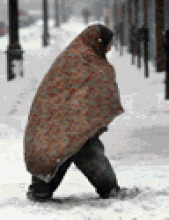Contact wounds: a war surgeon's education Jonathan Kaplan, Picador, UK; 2006 278 pp $24.39 ISBN 0330492586
Ostensibly, Contact Wounds: A War Surgeon's Education is a treatise on war surgery. Certainly the landscape of this exquisitely written and gripping book is dowsed in the efficient and bloody violence of the late 20th century. In the Angolan town of Kuito, the author, Dr. Jonathan Kaplan, amputates the last vestiges of wholeness from victims of land mines, soldiers and civilians alike, before sending them to the only business in town to be fitted for prosthetic limbs. Kaplan travels through this proverbial “land of the maimed” where war surgeons like his own father have travelled before, searching for the completeness that comes to certain wandering souls in the depravities of war.
Less a treatise, however, Contact wounds is the memoir of a surgeon who, having first seen war and medicine in apartheid South Africa and on an Israeli Kibbutz in the 1960s, wanders endlessly across the globe, as a doctor and as a witness to the violence of our times. Kaplan is the contemporary Odysseus who loses himself in the vice of the Sirens' songs, he feels the “incomprehensible communion” that comes to him in the dignity and violence of occupied Baghdad, he reads “the war news like job-vacancy ads, looking for peace.” Kaplan is taken by surprise when he finds himself teaching in a new faculty of Conflict and Catastrophe Medicine at the Royal College of Surgeons in London. His “haphazard occupation” has become a specialty of the 21st century.

Figure. Photo by: Picador/Pan Macmillan
There is also a lot that isn't surgery in this book. We hear of Kaplan's childhood in South Africa and the story of his parents who met whilst serving as medical volunteers in the young Israeli state of the 1940s. There is also the story of his investigations into a mysterious string of murders in South Africa, his investigative environmental work in Thailand and the saga of his close friend's disappearance in Madagascar. The book is populated with characters who, while struggling for what they believe to be a noble cause, often die at the hands of a primal, uncontrolled violence. Indeed, Death seems to be Kaplan's twin, as it follows him throughout his life, striking down his friends, his colleagues, the innocent.
This is Kaplan's second memoir. His first, The Dressing Station: A Surgeon's Chronicle of War and Medicine, was extremely well-received and provided a more focused account of his surgical adventures across the globe. Contact Wounds fills in the gaps and brings us up to date.
Kaplan's writing shows his gift for finding humour in the darkest of his ordeals, while recording and situating the history he has witnessed. When, as a medical student undertaking an elective in the Seychelles, Kaplan makes disparaging remarks about the country's new President to a pretty American woman, he is terrified when he receives a phone call from the President himself: “You have insulted the office of the presidency ... I will make you disappear! No-one will know what happened to you.” Kaplan survives by fleeing to the harbour and taking the first boat out of the country.
What doesn't kill us, we can sometimes look back on with laughter. Kaplan has been blessed throughout his life, able to walk through the mine fields of our troubled globe and emerge unscathed, except for a few scars. Contact Wounds is his unlikely, almost impossible story.








